
Cryptocurrency mixers, often called tumblers, have become a focal point in the ongoing debate over privacy and compliance in the digital asset ecosystem. As public blockchains make every transaction traceable, users seeking confidentiality have relied on these services to obscure the origins of their funds. However, the rise of mixers has also drawn scrutiny from regulators concerned about their potential misuse for illicit activities, such as money laundering or sanction evasion. In response, a new wave of regulated crypto mixers has emerged, aiming to deliver privacy-enhancing features without violating anti-money laundering (AML) and know-your-customer (KYC) laws.

Why Privacy Matters in Crypto, and Why It’s Complicated
Privacy is a fundamental right for many in the crypto community. Transparent blockchains like Bitcoin and Ethereum make every wallet and transaction public, which can expose users to risks ranging from targeted scams to commercial surveillance. Mixers address this by blending transactions, making it difficult to link funds to their source. Yet, this very strength has also made them a tool for those seeking to hide illicit gains.
Regulators worldwide have responded by tightening oversight. In the United States, the Financial Crimes Enforcement Network (FinCEN) now classifies custodial mixers as Money Services Businesses (MSBs). This means mixers must register with FinCEN, implement robust AML and KYC protocols, and maintain detailed transaction records. Failure to comply can result in severe penalties, including criminal charges.
How Regulated Crypto Mixers Achieve Privacy Without Breaking the Law
Unlike traditional mixers that prioritize anonymity above all else, compliant cryptocurrency mixers are designed to balance privacy with legal obligations. They do so through innovative technologies and governance models that satisfy both users and regulators.
- Selective De-Anonymization: Frameworks such as SeDe enable mixers to de-anonymize transactions only when certain conditions are met – for example, when multiple independent entities agree there is evidence of illicit activity. This approach preserves privacy for legitimate users while allowing authorities to investigate suspicious cases.
- Zero-Knowledge Proofs (ZKPs): Solutions like zkMixer let users prove the legitimacy of their transactions without disclosing sensitive details. Governance rules can be configured to refund or confiscate deposits if they are linked to illicit sources, ensuring only compliant transactions are processed.
- Compliance as Code: Modern mixers are increasingly embedding compliance logic directly into their smart contracts and protocols. This programmable privacy ensures that regulatory checks are enforced automatically, reducing the risk of human error or intentional circumvention.
These advances are not just theoretical. According to recent research, privacy-preserving technologies can be harmonized with AML/KYC requirements, creating a new class of privacy-compliant blockchain solutions that neither compromise user rights nor public safety.
Key Features of Regulated Crypto Mixers
-
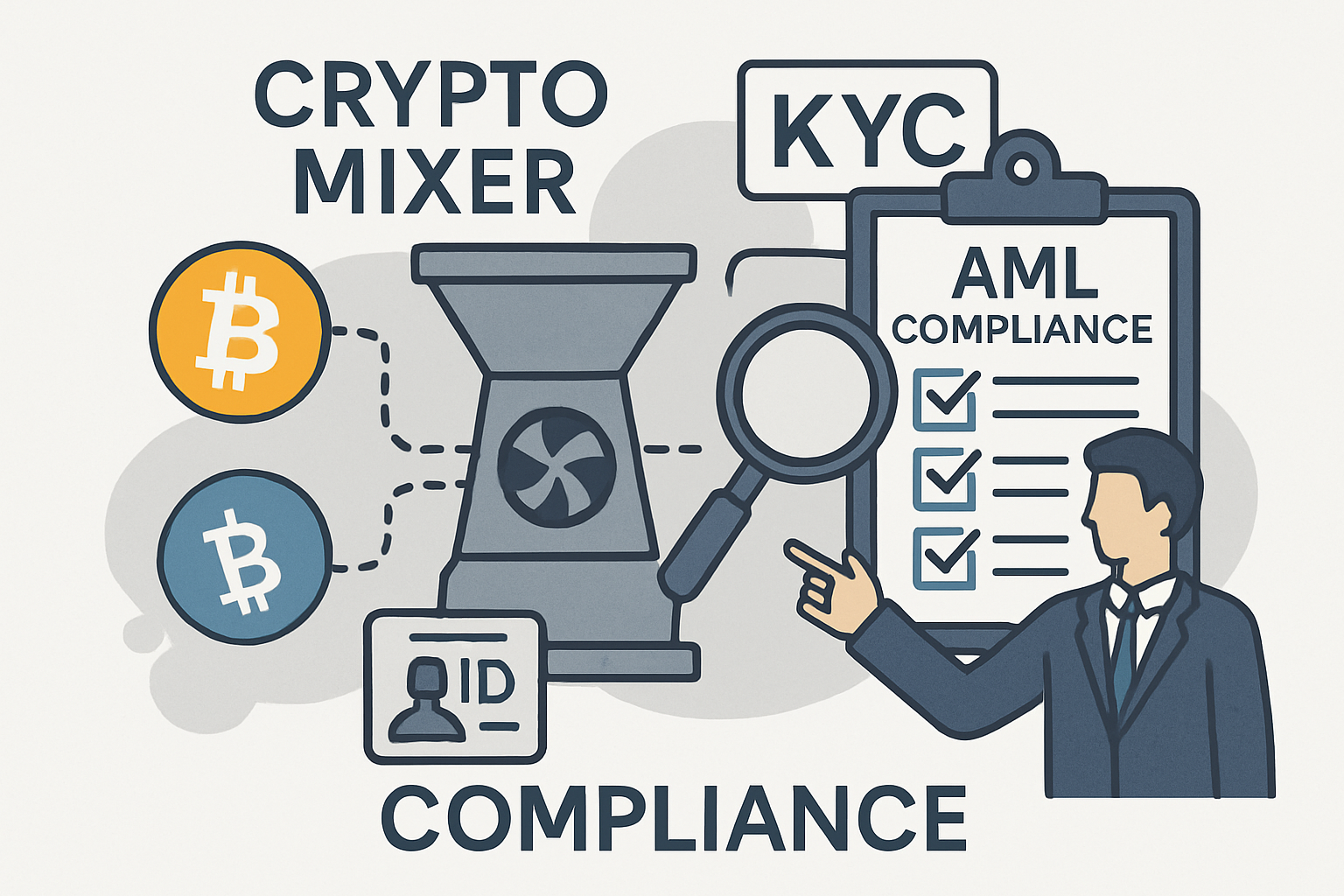
KYC & AML Compliance Programs: Regulated mixers implement robust Know Your Customer (KYC) and Anti-Money Laundering (AML) procedures, verifying user identities and monitoring transactions to prevent illicit activity while maintaining user trust.
-

Selective De-Anonymization Mechanisms: Frameworks like SeDe allow for the targeted de-anonymization of suspicious transactions through a consensus process, ensuring privacy for legitimate users while enabling regulatory oversight.
-

Zero-Knowledge Proofs (ZKPs): Advanced mixers use zero-knowledge proofs—such as the zkMixer framework—to validate transactions without revealing sensitive details, supporting privacy and compliance simultaneously.
-

Registration as Money Services Businesses (MSBs): In jurisdictions like the U.S., regulated mixers register with FinCEN and adhere to strict reporting and record-keeping requirements, aligning with legal obligations and increasing accountability.
-
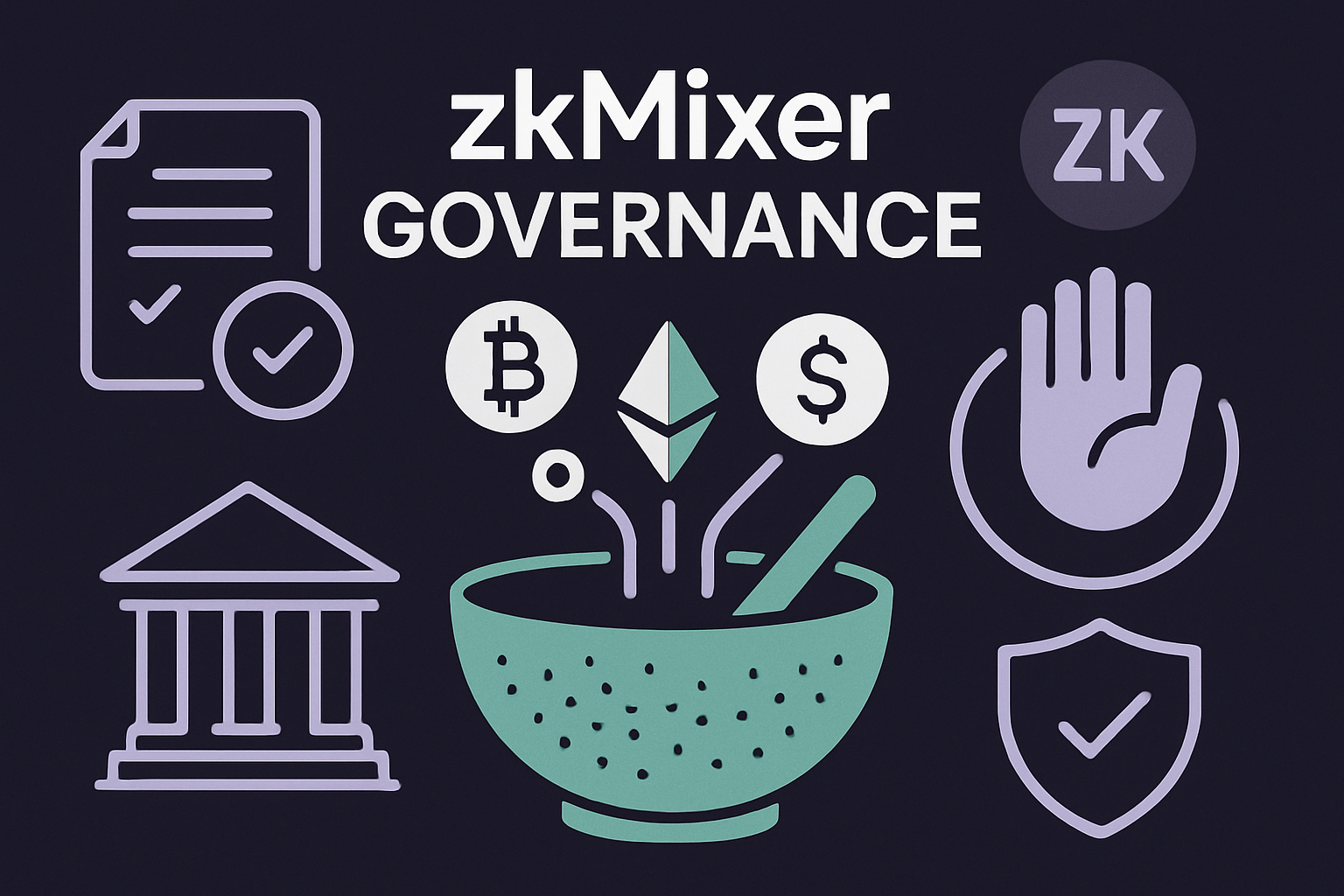
Configurable Governance and Controls: Solutions like zkMixer offer customizable governance, enabling operators to set rules for deposit refunds or confiscation if illicit activity is detected, balancing user privacy with regulatory needs.
-
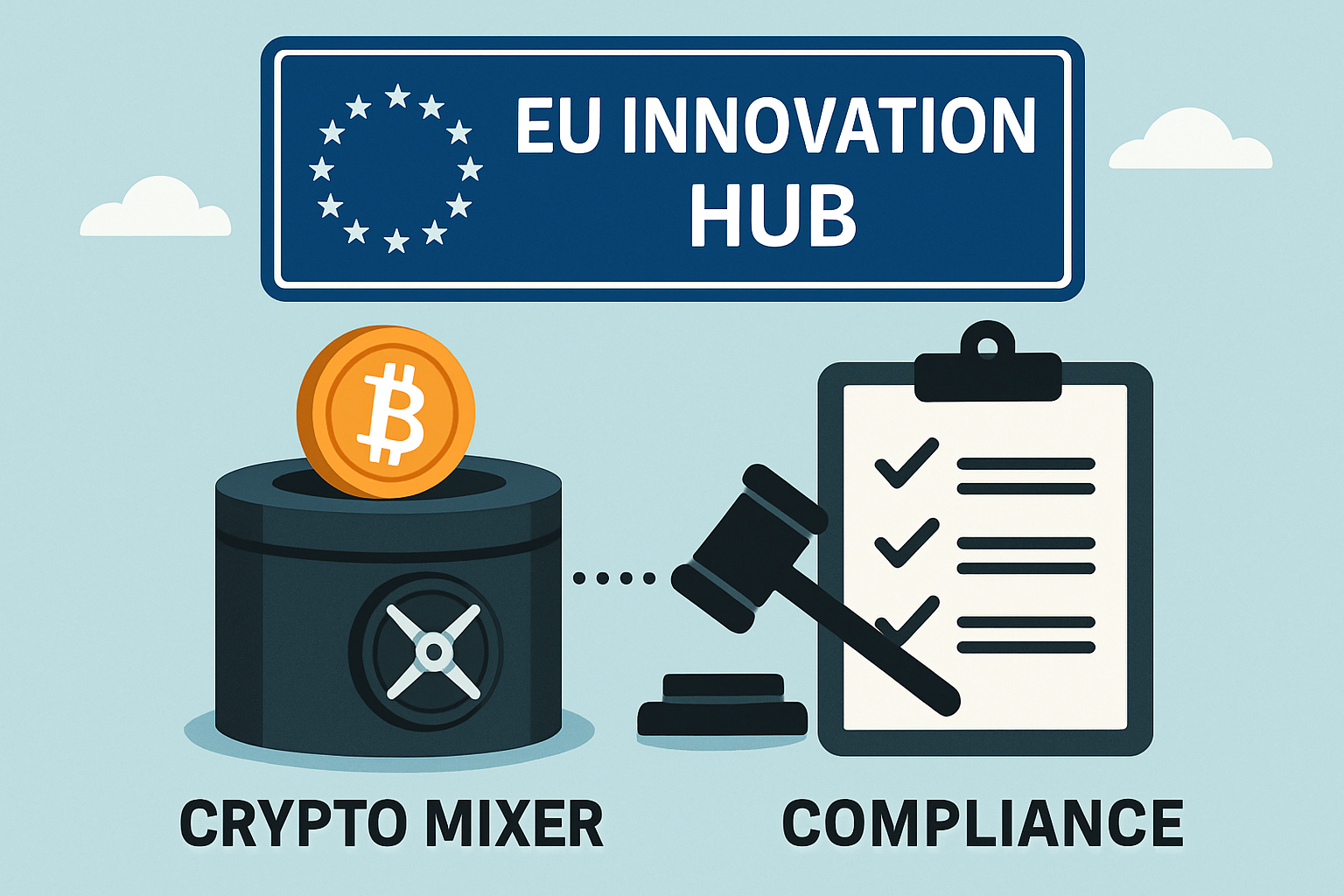
Collaboration with Regulators and Law Enforcement: Regulated mixers often work closely with authorities to develop privacy-preserving technologies that also support compliance, as highlighted by the EU Innovation Hub for Internal Security.
The Regulatory Landscape: Challenges and Opportunities
Despite the promise of these new approaches, regulated mixers operate in a complex environment. The European Union’s Innovation Hub for Internal Security has highlighted that privacy-enhancing technologies can complicate law enforcement’s ability to trace illicit funds. This creates a tension between the need for privacy and the imperative to prevent crime.
To address these challenges, ongoing collaboration is essential. Developers, regulators, and law enforcement agencies must work together to refine standards and best practices. The goal: to enable programmable privacy that is both robust and accountable, ensuring that crypto mixers are tools for legitimate financial privacy rather than vehicles for abuse.
The Future of Privacy-Compliant Crypto Mixers
As the crypto industry matures, the expectation is clear – privacy should not come at the expense of compliance. The next generation of KYC AML crypto mixers is proving that it is possible to protect users while upholding the law. By integrating selective de-anonymization, zero-knowledge proofs, and compliance as code, these platforms are setting new standards for responsible privacy in blockchain finance.
Importantly, these innovations are not just technical solutions but are also reshaping user expectations and institutional trust. Financial institutions, Web3 developers, and privacy-conscious individuals are watching closely as compliant cryptocurrency mixers demonstrate that privacy and transparency are not mutually exclusive. With programmable privacy, users gain confidence that their legitimate financial activities remain confidential, while regulators are assured that mechanisms exist for accountability if illicit activity is suspected.
Still, the regulatory landscape remains fluid. As new rules emerge and enforcement actions intensify, mixer operators must stay ahead by adopting best-in-class compliance tools and transparent governance. For example, integrating real-time transaction monitoring and automated suspicious activity reporting can help mixers demonstrate good faith to regulators. The role of third-party audits and open-source code is also growing, providing additional layers of reassurance for both users and authorities.
What Users Should Look for in a Regulated Crypto Mixer
Choosing a mixer that strikes the right balance between privacy and compliance is critical. Here are some features and practices that signal a credible, regulation-ready platform:
Key Features of Regulated Crypto Mixers
-
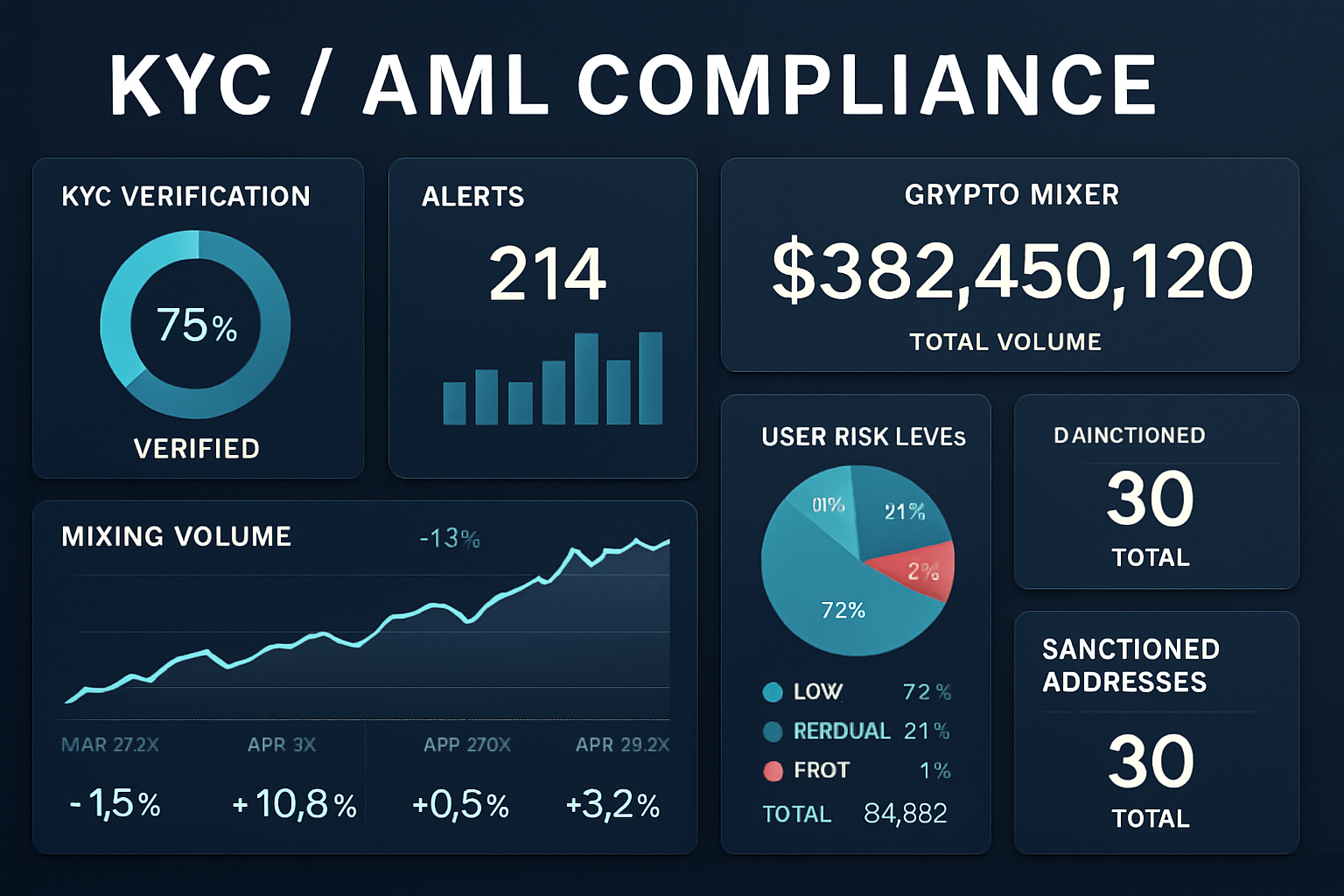
KYC/AML Integration: Platforms like Chainalysis and Merkle Science emphasize the importance of robust Know Your Customer (KYC) and Anti-Money Laundering (AML) checks. Regulated mixers should require user verification to prevent illicit activity while maintaining privacy for legitimate users.
-
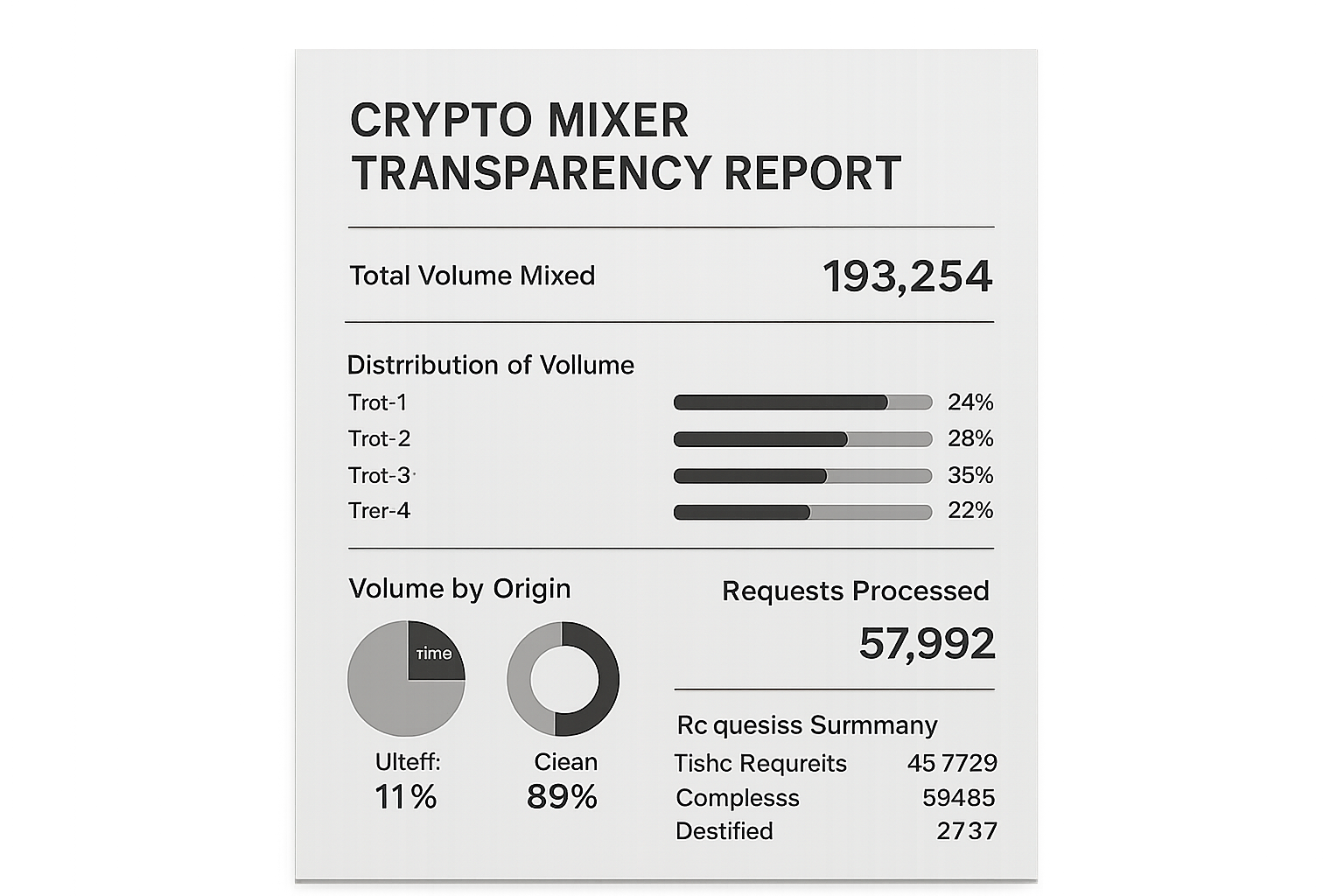
Transparency Reports: Leading services issue regular transparency reports detailing compliance efforts, transaction volumes, and law enforcement cooperation. This practice, seen in exchanges like Coinbase, builds user trust and regulatory confidence.
-
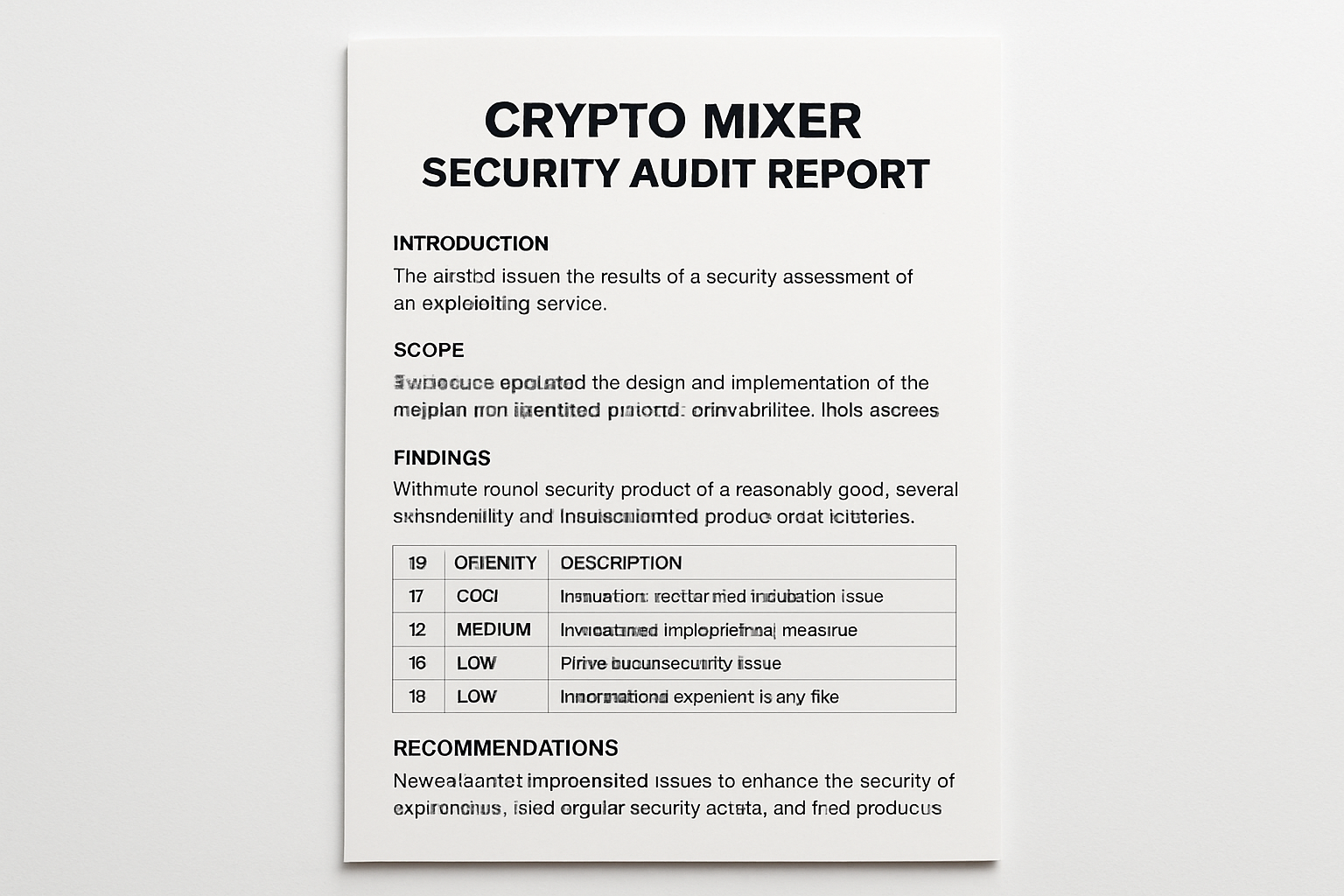
Auditability and Independent Security Audits: Reputable mixers, such as those following CertiK or Consensys Diligence standards, undergo regular third-party security audits. Publicly accessible audit results ensure the integrity of privacy mechanisms and compliance controls.
-
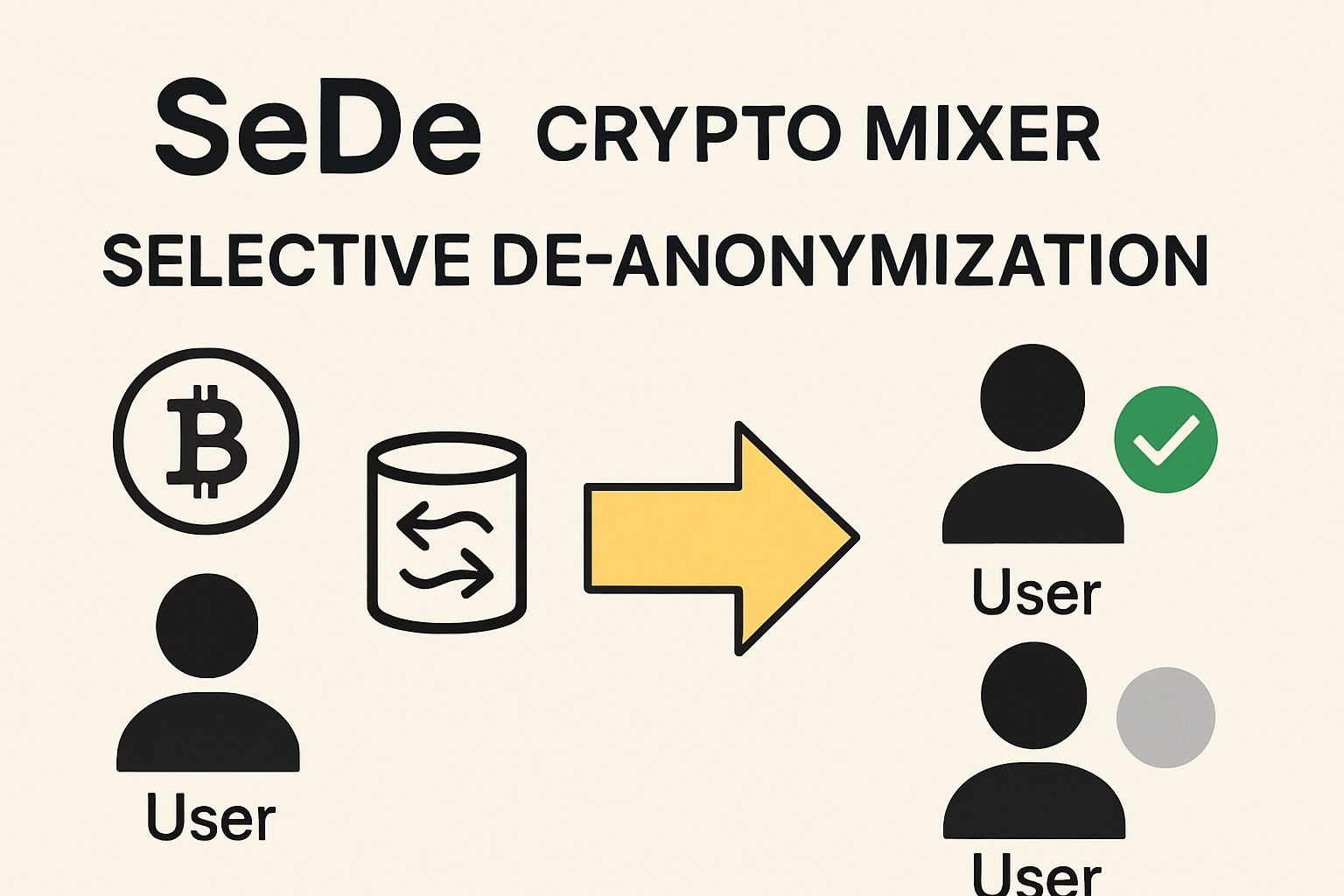
Selective De-Anonymization Mechanisms: Frameworks like SeDe enable the de-anonymization of suspicious transactions through consensus among trusted entities. This approach preserves privacy for compliant users while allowing intervention in cases of illicit activity.
-
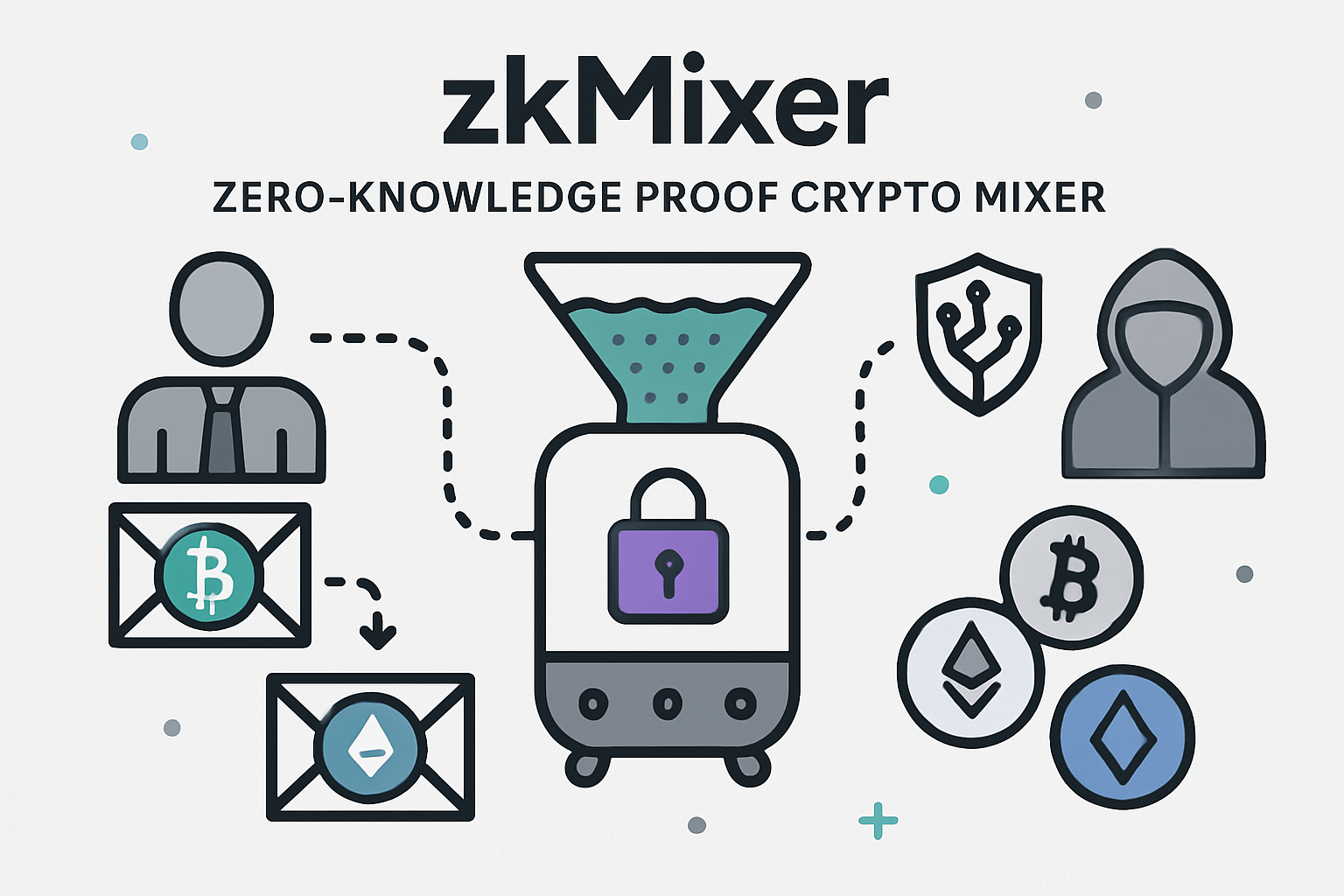
Zero-Knowledge Proofs (ZKPs): Advanced mixers, as explored in the zkMixer framework, use zero-knowledge proofs to validate transactions without exposing sensitive details. ZKPs ensure privacy while enabling compliance with regulatory requirements.
-
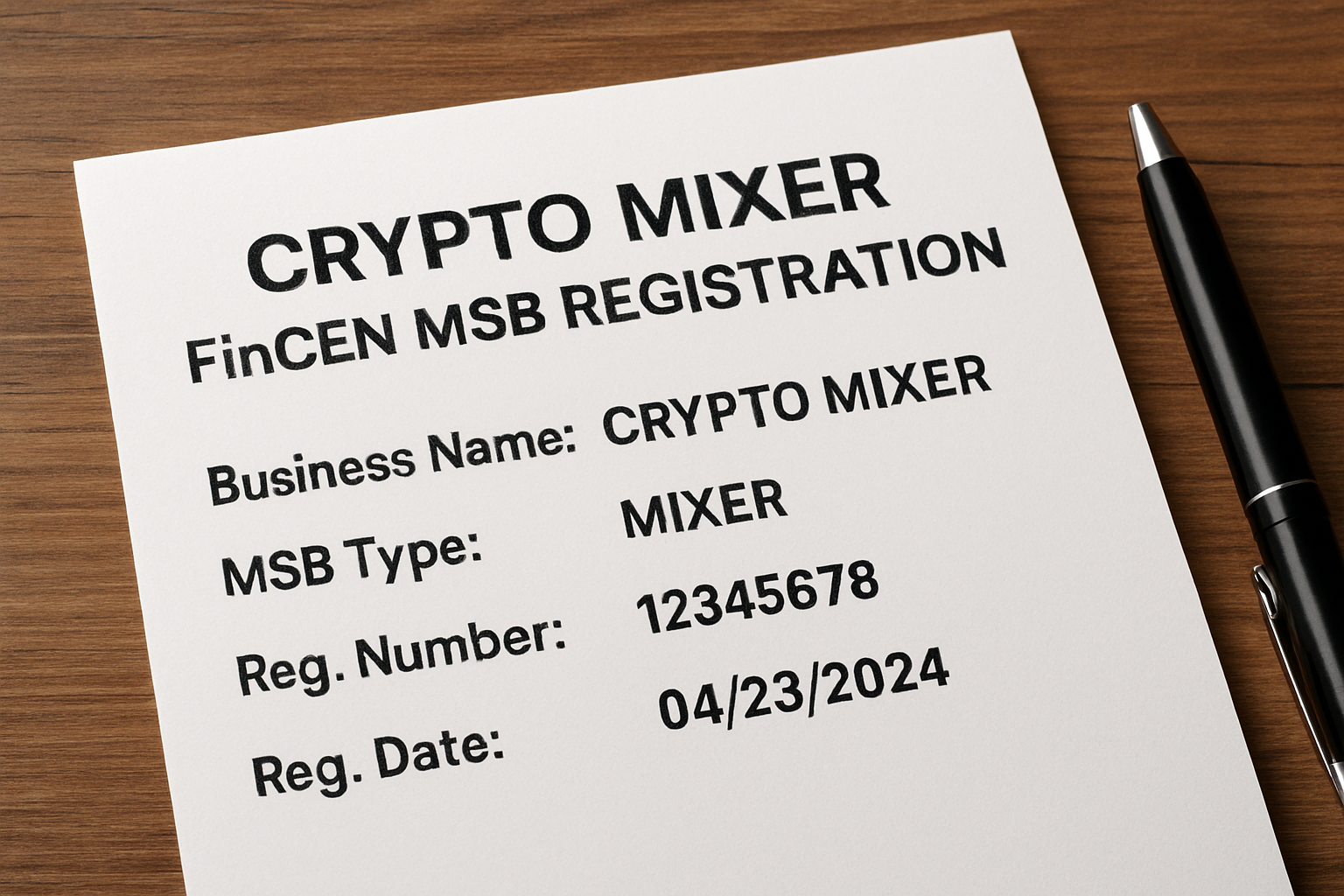
Compliance with Regulatory Frameworks: Regulated mixers must be registered as Money Services Businesses (MSBs) with authorities like FinCEN, and adhere to strict reporting and record-keeping obligations to avoid legal penalties.
Platforms that embrace these principles are well-positioned to thrive in a rapidly evolving regulatory context. By offering privacy that is both programmable and accountable, they empower users to transact securely while supporting the broader integrity of the crypto ecosystem.
Building a Stronger, More Trustworthy Crypto Ecosystem
The rise of regulated crypto mixers is not just a technical evolution but a cultural shift. As programmable privacy becomes the norm, the industry is moving beyond the old privacy-versus-compliance dichotomy. Instead, a new paradigm is emerging: one where privacy is a feature of robust compliance, not an obstacle to it.
For those seeking to navigate this landscape, staying informed is essential. Explore more about how regulated mixers are balancing privacy and compliance in our in-depth guides like How Regulated Crypto Mixers Enable Privacy Without Compromising Compliance and How Regulated Crypto Mixers Ensure Compliance With Global AML Laws.
Ultimately, regulated crypto mixers are paving the way for a future where financial privacy and regulatory compliance coexist. By adopting best practices and innovative technologies, these platforms are ensuring that crypto remains both a safe haven for personal freedom and a responsible participant in the global financial system.






